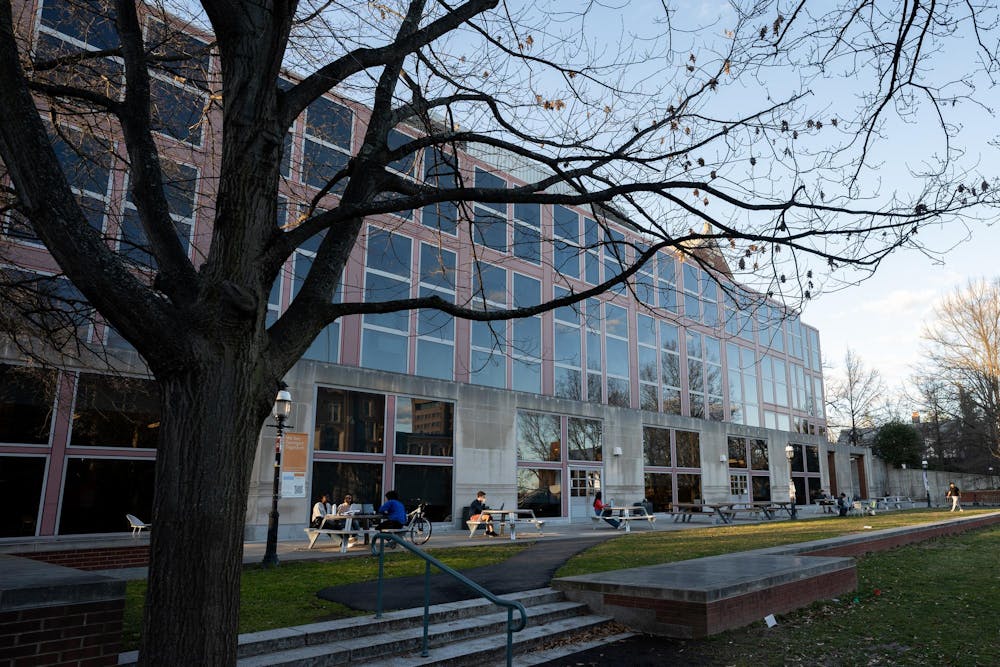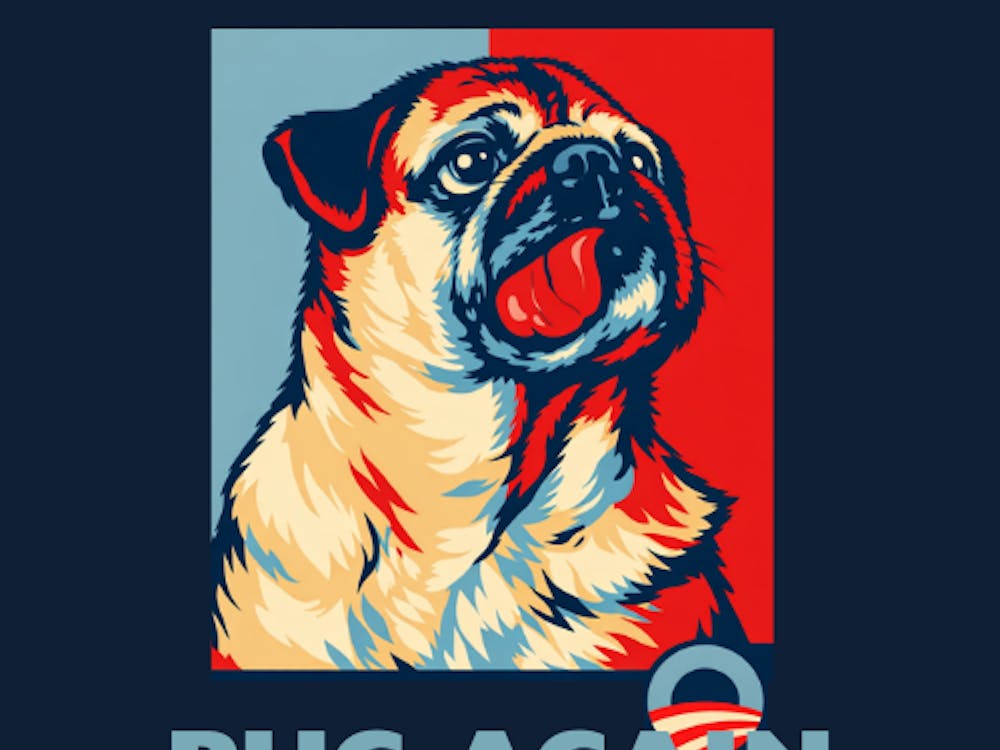When the Indian government banned TikTok almost 4 years ago, then-Secretary of State Mike Pompeo praised the measure as something that would “boost India’s sovereignty.” Now, the U.S. government is contemplating a bill that could do the same. Last Wednesday, the House of Representatives approved legislation that would, if it became a bill, force TikTok Inc., a U.S. company, to find a new parent company that “satisfies the U.S. government” or risk a ban in the United States.
Much of the current outrage on this bill might appeal to college students — of which 82 percent use the app — because it could block their ability to access content they find enjoyable. But they should be far more concerned by the readiness of our government to curb our First Amendment rights and impede the expression of our core democratic values.
The legislation that the House passed, which promises to restrict the rights of Americans to listen to speech of all sorts as well as engage in information-exchange on TikTok, is antithetical to the values of free speech Princetonians are taught to love. Such legislation should be strenuously opposed by us all. Moreover, the revelation that the House believes that reconciling free speech with citizen safety has become too difficult to accomplish in the digital age is a worrying portent of future restrictions to come.
Princeton’s generally robust protection of and lively debate around the free speech exercised by its community works to create a healthy living and learning environment. This is not only relevant to the functioning of a University, but of a society — as President Christopher Eisgruber ’83 noted in his most recent State of the University, free speech is “the lifeblood of any great university and any healthy democracy.” It is imperative, then, that students and faculty alike apply these principles to the world outside the Orange Bubble and strive to safeguard the First Amendment across all issues.
The current bill is not the first time that the U.S. government has attempted to legislate the reach of ByteDance, the China-based company which owns TikTok. Since Biden took office, his administration has engaged in negotiations with ByteDance to ensure a total separation between its consumer data and the reach of the Chinese Communist Party. A plan dubbed Project Texas was introduced to the Committee on Foreign Investment in the United States (CFIUS) by ByteDance two years ago, which provided for broad government oversight of the company. This included passing operations over data as well as engineering and content moderation to a board approved and “essentially selecte[d]” by CFIUS, who would also control company hiring practices and could demand changes at any time. Ultimately, this plan was not implemented.
Project Texas was intended to alleviate U.S. fears that foreign governments could control the media accessed by its citizens and protect data that could have implications for the security of the nation, while keeping the company under its original ownership. Now, the House has passed a plan that would force ByteDance to sell TikTok to keep the app accessible to American consumers, or ban it from American access altogether. Not only is the proposal that a government agency oversee the operations and management of an open media forum worrying, but the suggestion that the potential harm of this exchange outweighs the right of Americans to voluntarily participate in a particular information channel places an undue restriction upon them.
At Princeton, faculty and administrators have insisted time and time again that free speech must be a value respected in the absolute. President Eisgruber recently wrote that his job entails protecting “the right of people to say things that I find repugnant, hateful, and awful.” Presumably, this entails protecting the right of people to listen to such speech to begin with. Professor Robert P. George concurs, writing that free speech entails “the right to examine and defend or criticize any idea,” and that an absolutist interpretation necessitates protecting speech no matter how it may be judged to “be wrong, evil, or even dangerous.”
It will be interesting to see how this interpretation of the First Amendment is maintained as access to such dangerous ideas becomes increasingly easy. After all, it is easy to hold that speech promoting potentially harmful actions is worth protecting when the extent to which they can cause harm is limited. Yet in the digital age, engaging in speech acts — either sharing or receiving information — can lead to harm on a national level that would previously not have been possible.

The internet is rife with opportunities to spread hatred, share lies, and encourage abuse. To what extent should internet users be able to do so freely? The Supreme Court has ruled multiple times that the government cannot restrict its citizens’ access to information, even if that information is harmful. Essentially, this indicates that the freedom of speech includes the freedom of Americans to listen to sources to which they chose to give credence. In Lamont v. Postmaster General (1965), an act which barred the Postmaster from delivering communist propaganda unless it was specifically requested by the recipient was ruled unconstitutional. Later Courts have agreed with the principle that “the freedom to speak requires the freedom to hear.”
Now, the proposed bill threatens this principle by attempting to prevent Americans from voluntarily being influenced by foreign sources. The extent to which American consumers can consent to give foreign agents personal information, however, should remain an individual choice. While social media sites often have data collection standards that are highly invasive, it remains the consumer’s voluntary choice to participate in this exchange. Is the harm that the aggregate collection of this data poses sufficient to warrant the restriction on the free exchange of American citizens? For now, this does not seem to be the case.
Our Princeton education and exposure to Princeton intellectuals should lead to the conclusion that the absolutist definitions of free speech are correct. For the government to ban access to a media source, no matter how malicious its content might be, seems like a terrible overreach. Despite my sincere belief that we should all delete TikTok for the good of our souls, that must remain a personal decision, not a government one. Yet I am sympathetic to the overarching problem that such media access poses in the internet age, where the horrors communication channels bring about are almost unimaginable.
Ultimately, it seems that priority must be chosen: the safety of American consumers or the commitment to the ideals upon which the government rests. For now, the threat to the former seems small enough in comparison to the latter. But this may not always be the case, and as technologies evolve, Princetonians must ensure that our commitments to the values that render communities good and just evolve with them.

Abigail Rabieh is a junior in the history department from Cambridge, Mass. She is the public editor at the ‘Prince’ and can be reached via email at arabieh[at]princeton.edu or on X at @AbigailRabieh.








